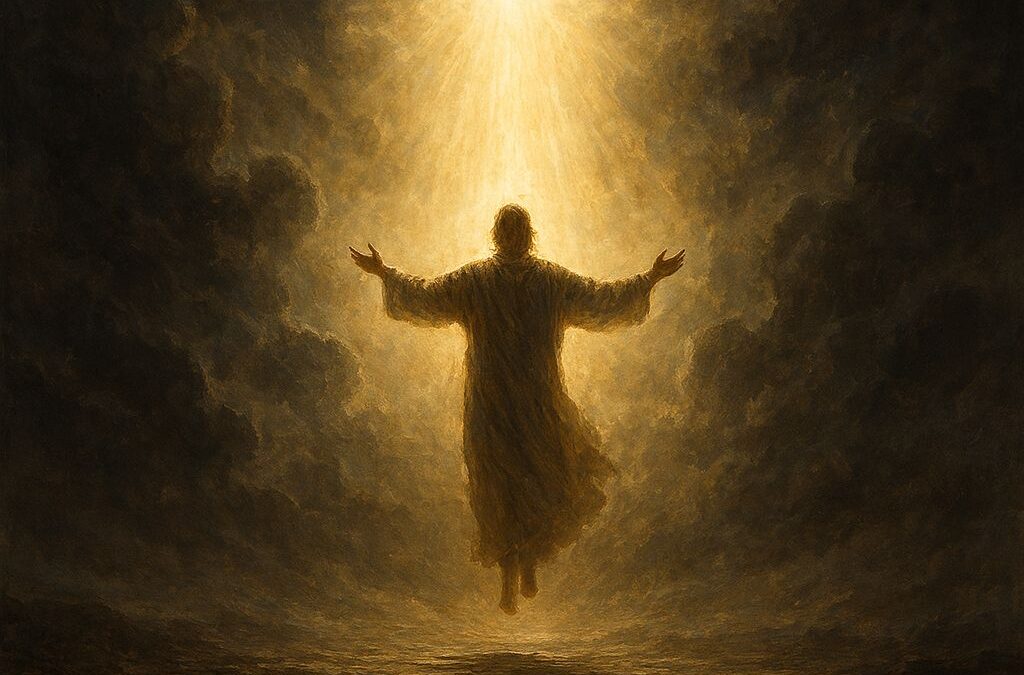Eternity Isn’t Time Extended—It’s Time Erased
Let’s test your knowledge, friend.
Describe forever — but do it without any mention, measure, or memory of time. Explain eternity without reaching for a clock, a calendar, or even a sunrise. Strip away every tick, every turn of the earth, every yesterday and tomorrow. Now tell me: what’s left?
You see, this is where confusion creeps and slips in — where falsehood finds its foothold in our thinking about the eternal land of forever. Because eternity—true eternity—isn’t measured. It isn’t marked. It isn’t time extended. It’s time erased. And the moment you try to drag time into an understanding of what is eternity, you’ve already lost the plot. You’ve made the infinite finite. Moreover, the moment you try to fit time inside eternity, it ceases to be eternal.
The Problem with Tradition: Eternity Misunderstood
For centuries, tradition—well-meaning but misinformed—has handed down a distortion. We’ve been told that “forever” is just time that never ends. — an ideology that has shaped the way we think about heaven and hell. Many have been taught that “forever” somehow involves time — that eternity ticks on like an endless clock. That heaven is an eternal worship service on the clock, and hell is an eternal torment chamber with no off switch. But beloved, that’s not revelation. That’s imagination baptized in fear.
Would a God of Love Design Endless Torment?
But let’s pause and reason together. Would the God who is love—who wrapped Himself in flesh, bore our curse, and became sin for us—really design a system where the unbelieving are kept barely alive, just enough to suffer endlessly? Does that sound like the heart of the Lamb who was slain?
How does that even make sense?
We Judge Eternity by Earthly Time—And That’s the Problem
The problem is that we keep trying to judge the eternal by what we know here and now. We keep wanting to judge the eternal by the temporal. We see evil and wickedness here and now, on this side of life, and then imagine some special place in hell where those we deem deserving are decision for beling punished without end. We imagine a hell that mirrors our type and kind of vengeance. We build a theology of punishment based on our pain.
But in doing so, we’ve carried time — our broken earthly framework — into a realm where it doesn’t belong. In fact, who died and left n us to be God? And in that moment, we stop reflecting God and start impersonating Him.
Who told us we could do that?
Scripture vs. Tradition: Revelation Must Trump Repetition
The deeper we dig into the Scriptures—not just the translations, but the textures, the tones, the original architecture—the more we see how tradition, even when taught by sincere men, can miss the mark. Too often, what’s passed along as doctrine is really dogma dressed up in tradition — rooted not in revelation, but in emotion and mental reasoning. And that, beloved, is not enlightenment. It’s limitation. Unfortunately, sadly, what’s been passed down as doctrine is really dogma dressed in hand-me-down robes. It’s not revelation. It’s repetition. And repetition without revelation is just religion.
Eternity in One Word
So whether we’re speaking of heaven or hell, if we had to describe eternity in one word—one word untouched by time, unmeasured by clocks, unspoiled by calendars—that word would be this:
“FINAL”
Not endless. Not ticking. Not torment on repeat.
Final.
And in that finality, there is justice.
There is mercy.
There is God.

